What is this product made from? Learn more about the three main fibre categories used to make your clothes.
Want to dig deeper into ethical fashion? Start your journey here.
Ethical fashion is an umbrella term describing fashion designed and produced in ways that respects workers and protects the environment.
As a global citizen, you have power to influence change for the 300 million people around the world who work in the fashion value chain, and may be working in unjust, exploitative conditions. All you need is a voice and a willingness to act on your convictions to see a better world for all.
But for many workers in the global fashion industry, this is far from their daily experience.
Modern slavery, forced and child labour, water pollution, and climate change are all major issues the fashion industry has contributed to.
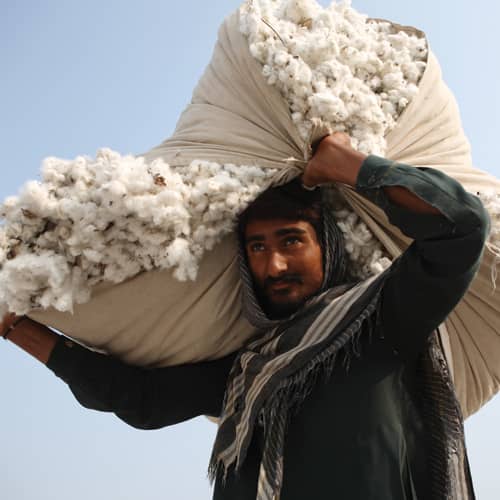
300 million people are employed in various stages of clothing production.
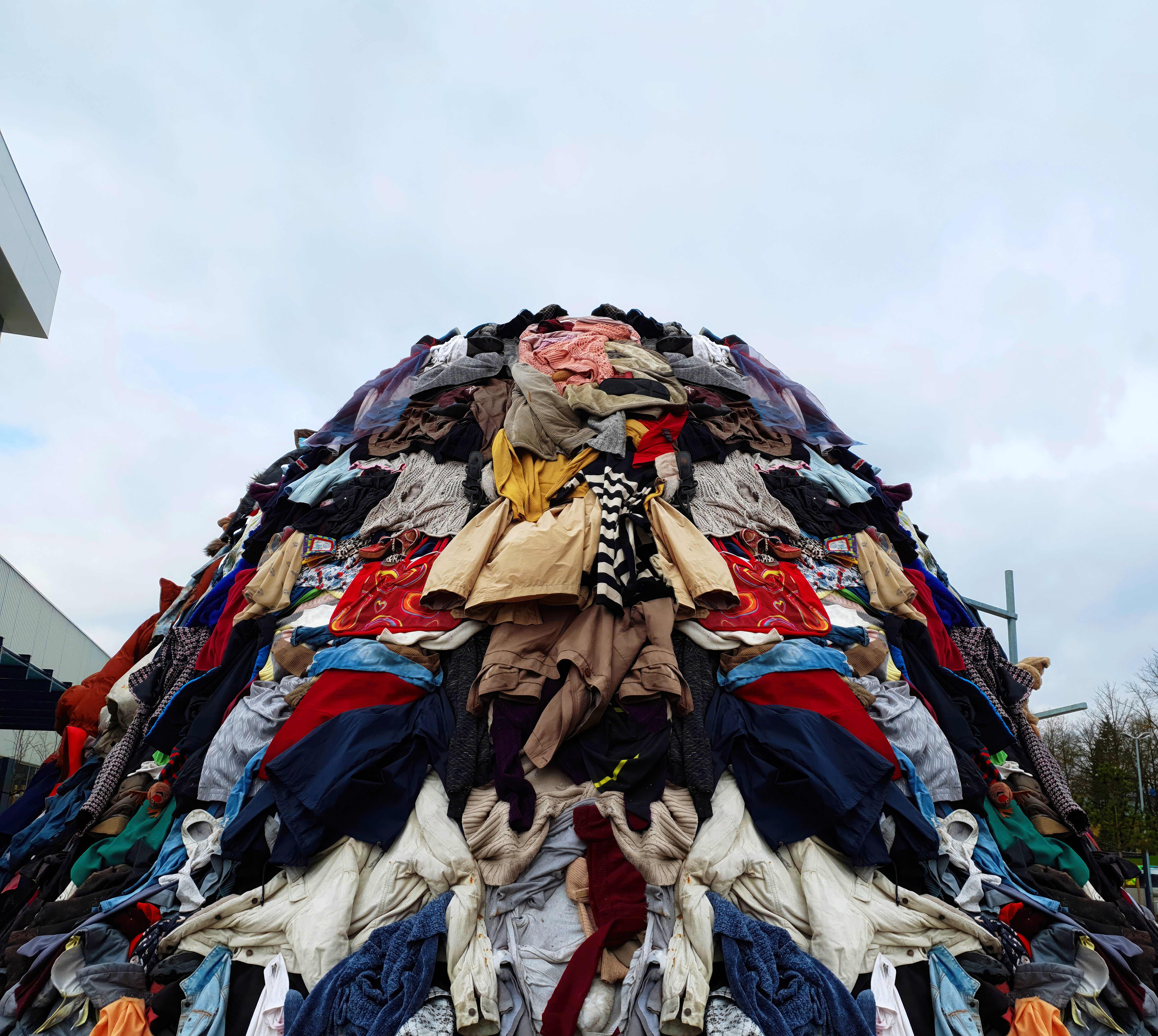
The equivalent of a rubbish truck full of clothes ends up in landfill every second.
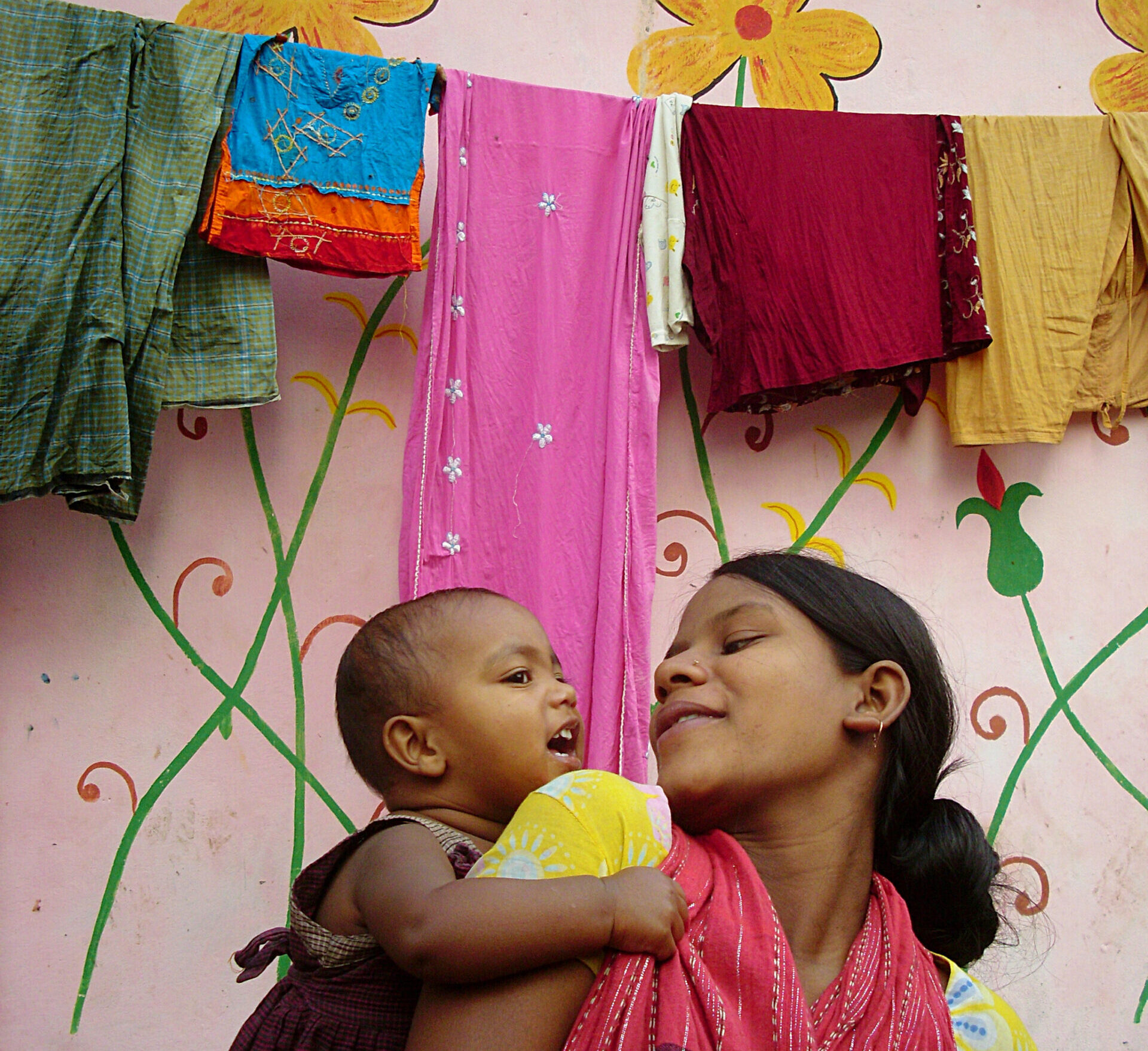
The Cost-of-living crisis is exacerbating the vulnerability of workers on low wages.
The United Nations defines poverty as more than a lack of income and access to necessary resources. Poverty affects all parts of a person’s life, including their health, education, work, and opportunities.
Several factors, including unemployment, social exclusion and vulnerability to disasters and diseases, create conditions for poverty. While the first United Nations sustainable development goal is to end poverty in all forms by 2030, little progress has been made to protect workers and improve supply chain practices.
The fashion industry benefits from low wages in garment-producing countries where poverty levels are high. The less they pay workers, the higher their profits. With only eight per cent of companies committed to working towards living wages, there is far more companies must do to help end extreme poverty.
Fashion connects us with these vulnerable workers and complex issues. The fashion industry is one of the top global industries at risk of modern slavery, and Australians spend billions each year on fashion that is at risk of being made with forced labour.
At Baptist World Aid, we continue to dream of a world where poverty has ended and all people—including garment workers— experience fullness of life as God intends.
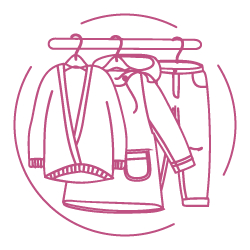
Consider whether you need an item before you buy it. Can you reuse or repair what you have, borrow from a friend, or repurpose something you already own?
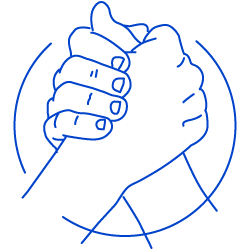
Host a clothes swap with your friends, share our Ethical Fashion Guide on social media, or have conversations about ethical fashion.
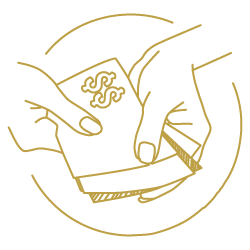
Before shopping, use our Ethical Fashion Guide to see how a brand scored in their efforts to treat workers fairly and care for the environment.
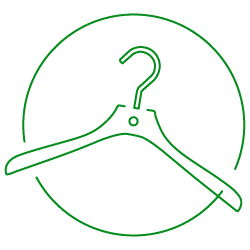
If a brand isn’t included in our guide, do your own research and find out what actions they’re taking to protect people and the planet. Things to look out for are if they use third-party certifications, produce items with sustainable fibres, or have any initiatives that protect the rights of workers.
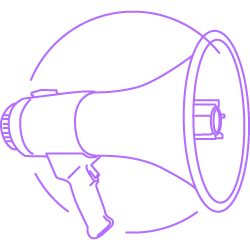
Your voice matters! Use our Speak out to Brands tool to encourage brands that are tracking well and ask brands that are lagging behind to do better.
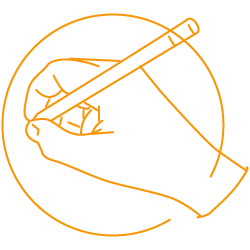
Let your MP know you want to see Australia be a global leader on fighting modern slavery, human rights, and environmental protection laws.